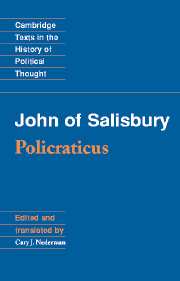Prologue
Published online by Cambridge University Press: 05 June 2012
Summary
Although pleasurable in many ways, the pursuit of letters is especially fruitful because it excludes all annoyances stemming from differences of time and place, it draws friends into each other's presence, and it abolishes the situation in which things worth knowing are not experienced. Arts would have perished, laws would have disappeared, faith and all religious duties whatsoever would have shattered, and even the correct use of eloquence would have declined, save that divine compassion granted to mortals the use of letters as a remedy for human infirmity. The examples of our ancestors, which are incitements and inducements to virtue, never would have encouraged and been heeded by everyone, unless, through devotion, care and diligence, writers triumphed over idleness and transmitted these things to posterity.
If indeed the shortness of life and the obtuseness of understanding, the negligence of inactivity and the uselessness of occupation, permit us to know little, then even this is constantly banished and torn from the soul by forgetfulness which deceives knowledge through perpetual hostility and infidelity to its stepmother, memory. Who would know of Alexander or Caesar, or would respect the Stoics or the Peripatetics, unless they had been distinguished by the memorials of writers? Whoever would have followed the footsteps of the cherished apostles and prophets, unless they had been consecrated for posterity in the Holy Scriptures? Triumphal arches advance the glory of illustrious men whenever inscriptions explain for what cause and for whom they have been erected.
- Type
- Chapter
- Information
- John of Salisbury: Policraticus , pp. 3 - 8Publisher: Cambridge University PressPrint publication year: 1990
- 1
- Cited by

